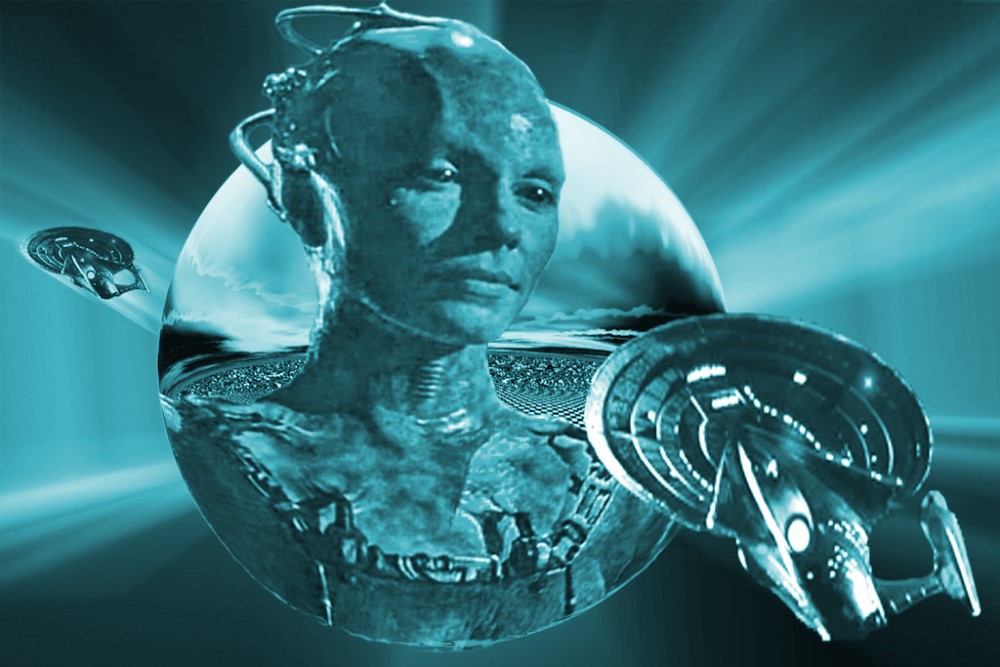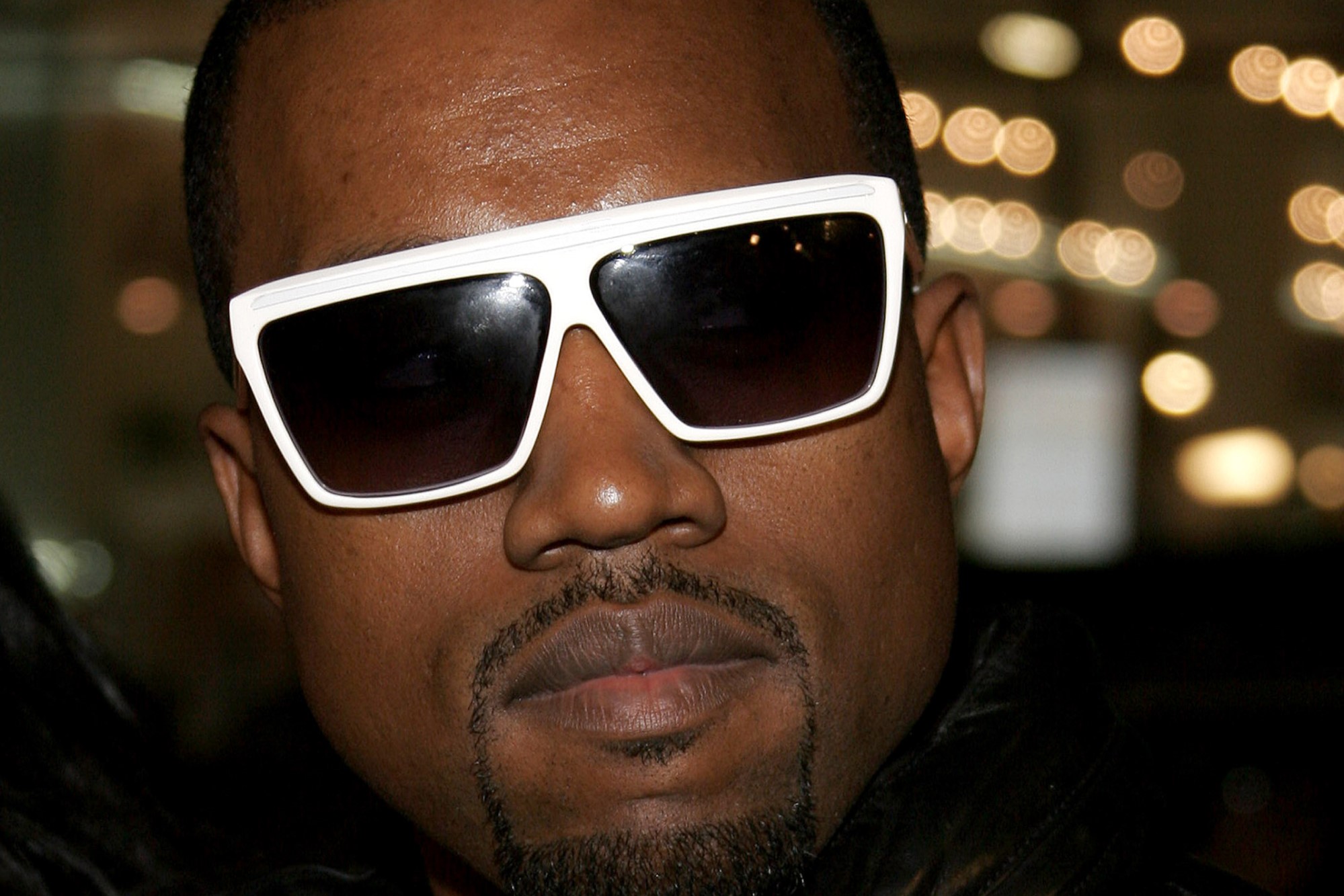The Totalitarianism of the Borg
WARNING: The following article contains minor spoilers for Picard seasons 1 & 2 on Paramount+.
Sir Patrick Stewart has once again returned to our screens as the iconic explorer, archaeologist, writer, historian, diplomat, and Earl Grey drinking machine that is Jean-Luc Picard. The first season of Picard saw Starfleet’s greatest officer come out of retirement to save the life of Soji, a woman with a mysterious past. As a result, we saw him make new friends and enemies, tackle a nefarious cabal, and attempt to come to terms with his failing health. Permeating the thoughtful narrative were philosophical issues galore, including what makes us worthy of moral consideration, how we find or create meaning in the face of death, and whether the ends can justify the means.
While only a few episodes in, Picard’s second season is shaping up to be equally thought-provoking, challenging our perceptions of personal identity and what we are willing to sacrifice or destroy to secure our survival. It also reintroduces us to several familiar faces, one of which featured heavily in the show’s promotional material, the Borg Queen. So, in honor of the return of one of Star Trek’s great villains, I wanted to explore the Borg’s totalitarian tendencies.
The Borg are a group of cyborgs that search the galaxy for assimilatable people, technology, and cultures. They are not made up of a single species but consist of countless ‘drones’ whom they have forcibly assimilated into their group. There are no individuals within the Borg as each drone is linked together via a hive mind called “The Collective.” Once connected, individuality is absorbed and subsumed. The individual becomes a techno-zombie, possessed by the vast hive mind.
The Borg’s ultimate goal is biological and technological “perfection.” They seek this by harvesting anything distinctive from other races. Because of this unrelenting process of assimilation and incorporation, the Borg are one of Star trek’s most formidable entities. A single drone can assimilate an entire starship, and a single borg vessel can destroy entire fleets or raze a city to the ground.
In their debut, Q describes the Borg as:
the ultimate user. They’re unlike any threat your Federation has ever faced. They’re not interested in political conquest, wealth, or power as you know it. They’re simply interested in your ship, its technology. They’ve identified it as something they can consume.
In their pursuit of perfection, the Borg leave no room for freedom of choice, equality, or compassion. On the contrary, the collective sees these traits as inefficiencies; obstacles on the path to perfection. As Seven of Nine – a Borg drone later freed from the collective – observes while aboard a Starfleet vessel, “you’re erratic, conflicted, disorganized. With every individual giving their own small opinion, you lack harmony, cohesion, greatness.” The disdain Seven of Nine expresses for the individual’s worth, and specifically for the value afforded to the expression of that will, is in direct opposition to Jean-Luc’s philosophy. As he states, in no uncertain terms, when the Borg captures him:
Capt. Picard: I have nothing to say to you; and I will resist you with my last ounce of strength.
The Borg: Strength is irrelevant. Resistance is futile. We wish to improve ourselves. We will add your biological and technological distinctiveness to our own. Your culture will adapt to service ours.
Capt. Picard: Impossible. My culture is based on freedom and self-determination.
The Borg: Freedom is irrelevant. Self-determination is irrelevant. You must comply.
Capt. Picard: We would rather die.
The Borg: Death is irrelevant.
Indoctrination into the collective erases all prior relationships with friends, family, religious affiliations, political memberships, and even one’s species status; the Borg consume them all. Even death lacks meaning for the Borg as death is merely the loss of the individual.
The portrait of the Borg painted here – a horrifying force assimilating everything into its structure, to the exclusion of all independent thought and actions, for the propagation of its survival and goal satisfaction – is terrifying. However, the Borg are more than tyrannous; they’re totalitarian.
Totalitarian governments attempt to control every aspect of their citizens’ lives through coercion and repression. As Alan Haworth highlights in his book, Totalitarianism and Philosophy, totalitarianism attempts to achieve total control via (i) the constriction of space and/or (ii) the conflict of wills.
The constriction-of-space model eliminates areas, be they conceptual or physical, where citizens can act autonomously. But, this is difficult to achieve as there are always ways for citizens to rebel and ways for states to exert more control. So, as Haworth argues, this avenue is more aspirational than anything else. A totalitarian state aims towards the total restriction of autonomous space even though such a state is unattainable. Or, in his own words:
This is, thus, a model of the relationship between control and liberty from which it follows that there is an inverse ratio between increase in control by the rulers and decrease in the area within which the ruled are free to act, in which case we must be forced to the conclusion that total control is a practical impossibility since – as the argument presupposes – rulers only have total control when their subjects cannot, as it were, ‘move’ at all, and that is something that could only happen – or so I take it – when the rulers are in a position to direct every single action and thought of those they rule.
The conflict-of-wills model envisions totalitarianism coming into full fruition when the oppressive government enforces its will upon its citizens, dominating their desires. This form of totalitarianism is more subtle than the overt constriction-of-space model. As Hannah Arendt remarks in The Origins of Totalitarianism, “[t]otalitarian terror achieved its most terrible triumph when it succeeded in cutting the moral person off from the individualist escape and in making the decisions of conscience absolutely questionable and equivocal.” This mode of totalitarianism subverts autonomy’s foundations and makes the previously unimaginable possible.
The Borg, however, do both of these. They invade the body and mind of the assimilated so entirely that they effectively enact both formulations of totalitarianism at once. The collective is housed just as much in the ships it commands as in the drones at its disposal. It maintains an all-pervasive watch on those who make up its quasi-species; there is no room for deviation from the collective’s will. More troubling, however, is their capacity to dominate the will of the individuals it assimilates. Even if room for deviation existed, the drones don’t have the capacity to take advantage of it. The Borg hive utterly dominates their will.
The portrayal of the Borg in the Star Trek franchise illustrates something important about totalitarianism’s nature. Namely, that as a political system, it demands unflinching obedience to the goals of those in power and cannot stand, nor survive, a populace that rebels against it. Indeed, when drones have regained their independence, the collective sees this as an imminent threat. The power of the Borg and the totalitarian state comes from their ability to dominate the wills of those they hold in their power. Thus, it is paramount to reject the urge to comply or be consumed by their pursuit of perfection or security. Neither the Borg nor the totalitarian state is invincible. Resistance isn’t futile.





